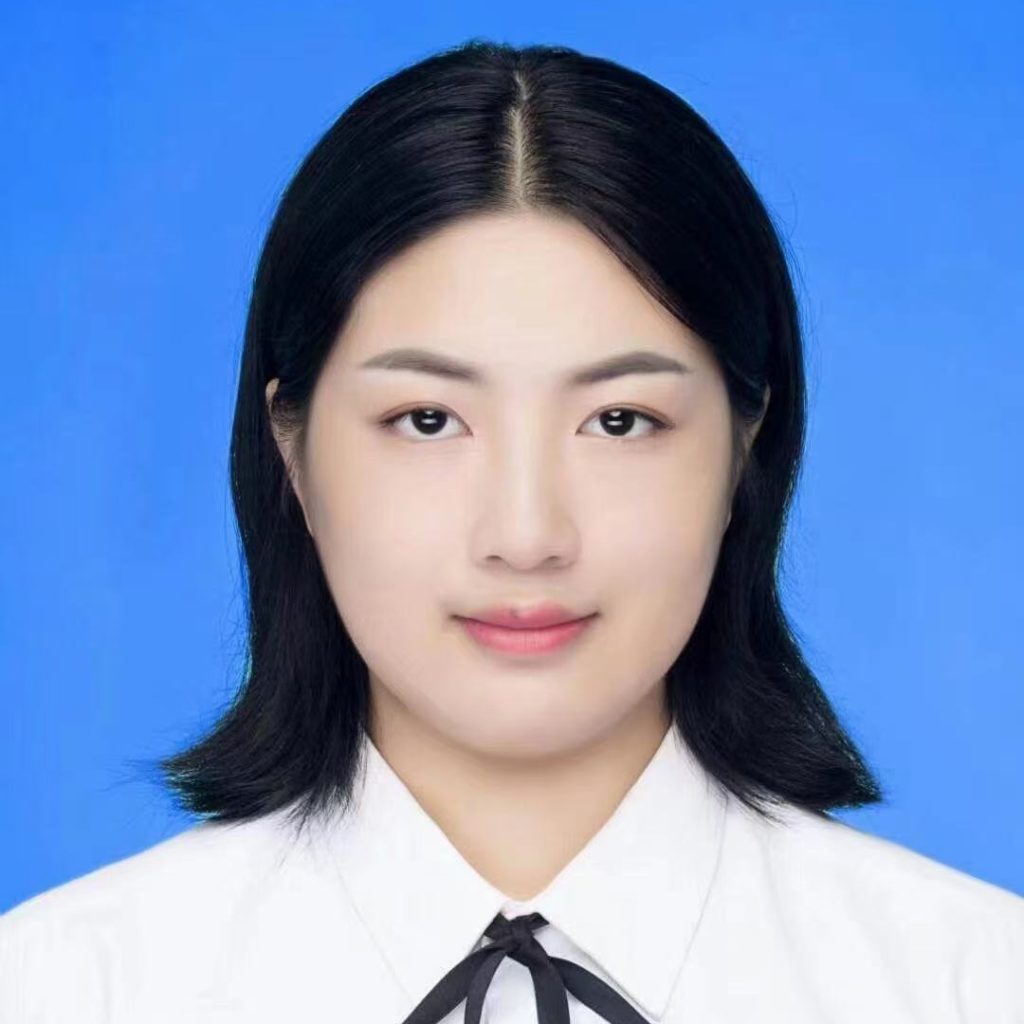About Us
Project PI and Co-PIs

Masha Sosonkina (Project PI) is a Professor of Electrical and Computer Engineering at Old Dominion University. She holds a Ph.D. in Computer Science and Applications from Virginia Polytechnic Institute and State University. Her research interests include high-performance simulations and applications, parallel numerical algorithms, energy-efficient computing systems, computational science and engineering, and data-science infrastructure.

Peng Jiang (Co-PI) is an Assistant Professor of Cybersecurity at the School of Interdisciplinary Informatics at the University of Nebraska at Omaha (UNO), where he is dedicated to advancing the fields of AI and Cybersecurity. His research focuses on developing intelligent systems that detect, mitigate, and adapt to emerging threats in wireless communications and autonomous vehicles. Prior to joining UNO, he was a lecturer of cybersecurity at Old Dominion University from 2019. He received a B.S. in Communication Engineering from Chongqing University of Posts and Telecommunications in 2014, an M.E. and a Ph.D. in Electrical and Computer Engineering from Old Dominion University in 2017 and 2024, respectively.

Wirawan Purwanto (Co-PI) is a Computational Scientist with the Research & Cloud Computing group at Old Dominion University. He holds a Ph.D. in Physics from the College of William & Mary. His research interests include quantum simulations of materials with focus on quantum Monte Carlo methods; high-performance computing (HPC); parallel programming languages and techniques. He currently supports ODU faculty and students on the applications of advanced computing technologies to scientific simulation and modeling, as well as in training the scientific workforce to utilize HPC effectively. He is also actively involved in HPC Carpentries, a community-driven organization focused on teaching HPC-oriented coding and data science skills to reduce barrier of entry for researchers. In his spare time, he likes to play piano, tinker with computers, read and study the Bible.

Hongyi “Michael” Wu (Co-PI) is the Thomas R. Brown Leadership Chair and Department Head of Electrical and Computer Engineering at the University of Arizona. He received his B.S. degree in Scientific Instruments from Zhejiang University, Hangzhou, China, in 1996, and subsequently obtained his M.S. degree in Electrical Engineering and Ph.D. degree in Computer Science at the State University of New York (SUNY) at Buffalo in 2000 and 2002, respectively. His current research focuses on security and privacy in intelligent computing and communication systems. He has received several awards and honors throughout his career, including an NSF CAREER Award in 2004, the UL Lafayette Distinguished Professor Award in 2011, the IEEE Percom Mark Weiser Best Paper Award in 2018, and the UB CSE Distinguished Alumni Award in 2022.

Mohan Yang (Co-PI) joined the Human Resource Development program at Texas A&M University as an assistant professor in 2024. Previously, he was an assistant professor in the Workforce and Organizational Development program at Old Dominion University. He received his Ph.D. in Learning Design and Technology at Purdue University. Dr. Yang’s research focuses on workforce preparation and organizational performance through training and development. His research areas include integrating emerging technologies in training and education, leveraging instructional design for training effectiveness, examining transfer of training, online learning, and universal design for learning. Dr. Yang completed a 3-year service and will start his second term in the presidential role of the Division of Organizational Training and Performance of the Association for Educational Communications and Technology (AECT).
Teaching Assistants

Ted Birkland is a junior at Old Dominion University double majoring in Electrical Engineering and Modeling & Simulation Engineering. He is currently a part of the Undergraduate Modeling & Simulation Fellowship, designing simulation software and integrating artificial intelligence to support research development. Ted contributes to T3-CIDERS and DeapSECURE through lesson development, technical infrastructure logistics support, and unified computational environments used in training and workshop activities.

Kristin Herman is a Ph.D. candidate in Instructional Design and Technology under the supervision of Dr. John Baaki at Old Dominion University. She holds a BA in English from Villanova University and an MA in Teaching from Duke University. She has served as an instructional and curriculum designer for multiple school districts and higher-ed institutions in the greater Philadelphia area. Her research interests include a trauma-informed approach to instructional design across learning modalities and the potential of artificial intelligence to prioritize learner belonging.

Chunlin “Stanley” Huang is currently pursuing a Ph.D. in machine learning security at the University of Arizona. Previously he served as a Research Assistant at the Institute of Information Science, Academia Sinica in Taipei, Republic of China (2017–2022) and as an Engineer at Winbond Electronics (2010–2017). His expertise spans testing program development, data analysis, circuit debugging, and integrating machine learning into semiconductor testing workflows. His key achievements include reducing semiconductor CPW (cost per wafer) by 50%, elevating advanced NAND flash product yields from 0% to 50%, and pioneering a machine learning initiative with an 86% prediction rate. Chunlin holds a Master’s degree in Electrical Engineering from National Cheng Kung University and a Bachelor’s in Electronics from National Taipei University of Technology.

Junyi Jiang is a Ph.D. student in Electrical and Computer Engineering under the supervision of Dr. Qianlong Wang at Old Dominion University. She holds a Bachelor’s degree from Changsha University of Science and Technology and a Master’s degree from Jinan University. Her research interests mainly focus on distributed backdoor attacks for LLMs, HPC-enhanced backdoor attacks for AI, and recommender systems. She is dedicated to exploring the robustness and security in next-generation AI systems.

Kyung Nam Kim is a Ph.D. candidate in Human Resource Development at Texas A&M University and chair of the Scholar-Practitioner Special Interest Group (SIG) of the Academy of Human Resource Development (AHRD). Building on industry experience and interdisciplinary academic training in business, sociology, psychology, and education, her research examines leadership, talent development, employee engagement and careers, and network analysis and people analytics. Across these areas, her work focuses on bridging theory and practice to address the dynamics of the emerging workforce.

Belle Li is a Ph.D. candidate in Learning Design & Technology at Purdue University. Her research examines how emerging AI technologies can amplify human agency in various learning environments. Beyond academia, she builds educational apps and collaborates with communities to bring human-centered technologies to life. Learn more about her work at https://www.beeelle.com/.
Project Coordinators

Dorothy “Dorie” Parry received her MS in Modeling and Simulation Engineering from Old Dominion University in May 2024. She received a BS in both Engineering Physics and Mathematics from Randolph-Macon College in June 2018. Her Master’s research focuses on predictive time series for GPU utilization and power draw during memory-intensive application runs. Research interests include high power computing parallel GPU performance and predictive time series machine learning algorithms.
Project Evaluator

Shanan Chappell Moots, Ph.D., currently serves as Director of Research Analytics and Research Professor in The Center for Educational Partnerships at Old Dominion University. She has served on nearly $34 million in externally funded educational research projects, primarily program evaluations, STEM projects, military child and family educational programs, and workforce readiness initiatives. Dr. Chappell Moots also has an appointment as Collaborative Faculty in the Educational Psychology and Program Evaluation graduate program in the Darden College of Education and Professional Studies (ODU) where she teaches graduate and undergraduate courses in select semesters. She has collaborated on projects with faculty and researchers from universities and organizations across the United States and has disseminated research through peer-reviewed journal articles, conference presentations, technical reports, guest lectures and media presentations.
Past Team Members

Jiawei Chen is currently a Ph.D. student in Computer Science under the supervision of Dr. Rui Ning at Old Dominion University. He holds a Bachelor’s degree from Tibet University and a Master’s degree from Northeastern University (China). His research interests primarily focus on backdoor attacks and defenses in deep neural networks. In his spare time, he enjoys photography, playing guitar, and exercising.

Sylvia Cooper is currently a student at Old Dominion University for her Master’s in Special Education. She holds a Bachelor’s and Master’s degree from University of Phoenix in Science and Human Resources Management. She currently teaches 11th grade special education, along with a background in CPA.

Chunyu Hu is currently pursuing his Ph.D. in Computer Science under the supervision of Dr. Rui Ning at Old Dominion University. He has previously earned both his Bachelor’s and Master’s degrees in Electrical Engineering from Harbin University of Science and Technology. His research interests are centered on the security aspects of artificial intelligence, exploring vulnerabilities and developing defenses within AI systems.

Jael Perales previously supported the content development and initial project planning for the T3-CIDERS program. He holds a master’s degree in Technical Communication from Texas State University and a bachelor’s degree in Astronomy from the University of Texas at Austin. He is currently a Technical Editor and Publications Lead for Water Power research at the National Renewable Energy Laboratory (NREL). He currently supports researchers and staff at NREL with the development and publication of technical reports, journal articles, conference materials, and outreach. When not at work, Jael likes to play with his two children, learn about coffee with his wife, and explore how machines work.

Elexiah Smart is currently pursuing a dual degree for BSEE and BSComE in Modeling and Simulation Engineering at Old Dominion University, where she is also part of the Modeling and Simulation Fellowship Program of the U.S. Department of Education. She currently holds the publicity chair of the Old Dominion University Chapter of the Society of Women Engineers on campus. In her free time, she likes to crochet, spend time with her family and friends, and read novels.
Acknowledgements
The T3-CIDERS training program is a collaborative project of Old Dominion University and the University of Arizona, funded by the U.S. National Science Foundation CyberTraining grants #2320998 and #2320999.
